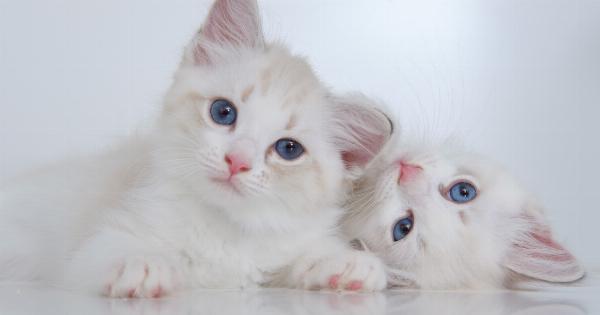Soft drinks have long been associated with weight gain and obesity due to their high sugar content. However, not all soft drinks are bad for weight loss.
In fact, some soft drinks that are low in calories can actually aid in weight loss while still providing a refreshing pick-me-up. In this article, we will explore some small but powerful soft drink options for weight loss.
1. Diet soda
Diet soda is a low calorie soft drink that can be a great option for those trying to lose weight. Unlike regular soda, which contains upwards of 150 calories per 12-ounce serving, diet soda contains zero calories.
While some studies have suggested that artificial sweeteners in diet soda may be linked to weight gain, the evidence remains inconclusive. Many people find that diet soda is a helpful tool in weight loss, as it provides a carbonated drink option without the added calories and sugar.
2. Sparkling water
Sparkling water, also known as carbonated water, is a calorie-free soft drink that can help with weight loss. While plain water is always the best option, some people find flat water to be too boring.
Sparkling water provides a bubbly and refreshing alternative without the added calories. Sparkling water comes in a variety of flavors and can be a great way to satisfy a sweet tooth without indulging in sugary drinks.
3. Kombucha
Kombucha is a fermented tea that has been around for centuries. It has gained popularity in recent years due to its potential health benefits, including aiding in weight loss.
Kombucha contains live bacteria and yeast, which can aid in digestion and improve gut health. Additionally, kombucha is a low calorie soft drink that comes in a variety of flavors. Some studies have suggested that kombucha may help to regulate appetite and reduce cravings, making it a great option for weight loss.
4. Coconut water
Coconut water is a refreshing and hydrating soft drink that can also aid in weight loss. Coconut water is low in calories and high in electrolytes, which can help to reduce bloating and water retention.
Additionally, coconut water contains medium-chain triglycerides (MCTs), which have been shown to aid in weight loss. MCTs are easily digested and converted into energy, making them a great source of fuel for the body. Coconut water can be enjoyed on its own or can be used as a base for smoothies and other low calorie drinks.
5. Green tea
Green tea is a low calorie beverage that has been shown to aid in weight loss. Green tea contains antioxidants called catechins, which may help to boost metabolism and aid in fat burning.
Additionally, green tea contains caffeine, which can help to improve energy levels and reduce appetite. Some studies have suggested that drinking green tea may help to reduce belly fat, making it a great option for those trying to lose weight.
6. Yerba mate
Yerba mate is a traditional South American tea that has gained popularity in recent years due to its potential health benefits. Yerba mate contains caffeine and antioxidants that can aid in weight loss.
Additionally, yerba mate has been shown to improve digestion and metabolism, making it a great soft drink option for weight loss. Yerba mate is available in loose leaf or bagged form, and can be enjoyed hot or cold.
7. Herbal tea
Herbal tea is a low calorie soft drink that can be a great option for weight loss. Herbal teas come in a variety of flavors, and some herbs such as peppermint and ginger have been shown to aid in digestion and reduce cravings.
Additionally, herbal teas are often caffeine-free, making them a great option for those who are sensitive to caffeine. Herbal teas can be enjoyed hot or cold and can be sweetened with a small amount of honey or stevia for added flavor.
8. Tomato juice
Tomato juice is a low calorie soft drink option that is high in nutrients and may aid in weight loss. One cup of tomato juice contains just 41 calories and is packed with vitamins A and C, as well as potassium.
Additionally, tomato juice contains lycopene, an antioxidant that may help to reduce inflammation and improve metabolism. When choosing tomato juice, make sure to select a brand that is low in sodium, as excess sodium can lead to water retention and bloating.
9. Apple cider vinegar drink
Apple cider vinegar has gained popularity in recent years due to its potential health benefits, including aiding in weight loss. While apple cider vinegar can be taken on its own, many people find the taste to be too strong.
To make an apple cider vinegar drink, simply mix one tablespoon of apple cider vinegar with eight ounces of water and a small amount of honey or stevia for added sweetness. Apple cider vinegar has been shown to aid in digestion, reduce appetite, and improve gut health, making it a great option for weight loss.
10. Lemon water
Lemon water is a low calorie soft drink that can aid in weight loss. Simply squeeze half a lemon into a glass of water and enjoy. Lemon water may help to improve digestion, reduce bloating, and aid in weight loss.
Additionally, lemon water provides a refreshing and hydrating option without the added calories and sugar of other soft drinks.
Conclusion
While soft drinks are often associated with weight gain and obesity, there are many low calorie options that can aid in weight loss.
Diet soda, sparkling water, kombucha, coconut water, green tea, yerba mate, herbal tea, tomato juice, apple cider vinegar drinks, and lemon water are all small but powerful soft drink options for weight loss. Incorporating these drinks into your diet can help to reduce cravings, improve digestion, and aid in weight loss while still providing a refreshing and satisfying beverage option.































